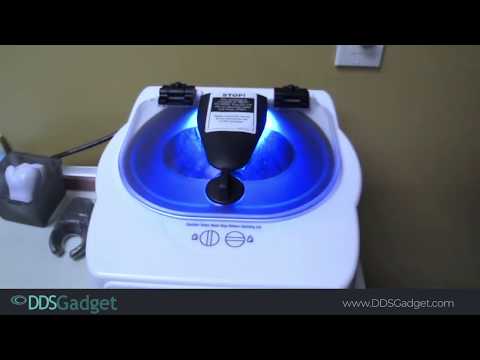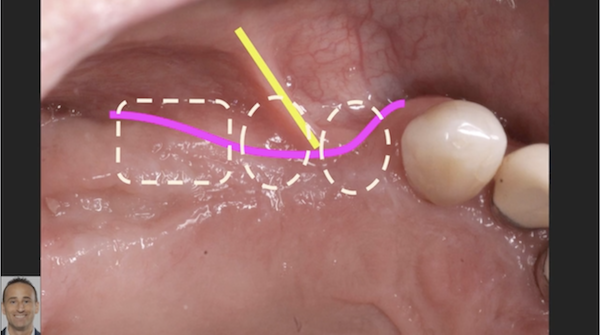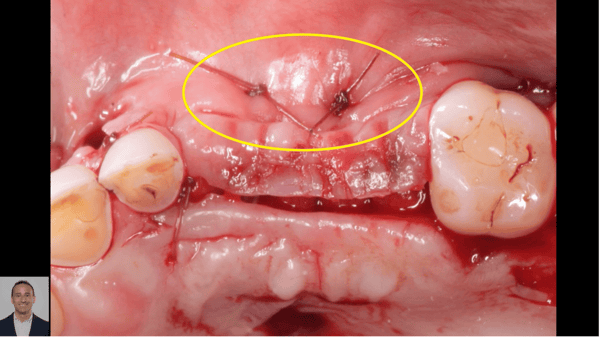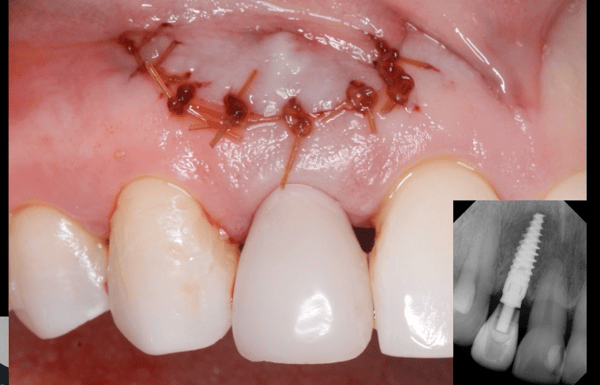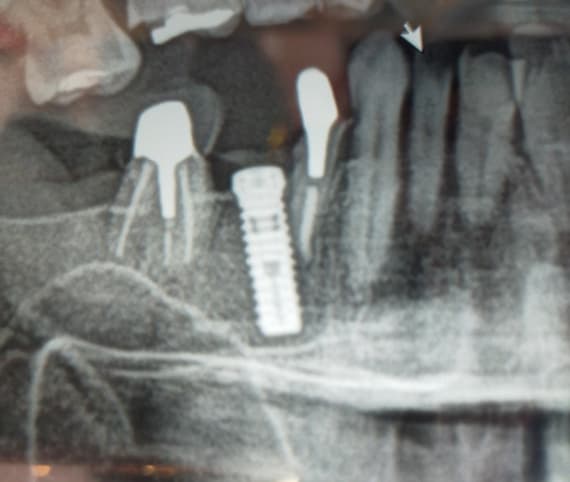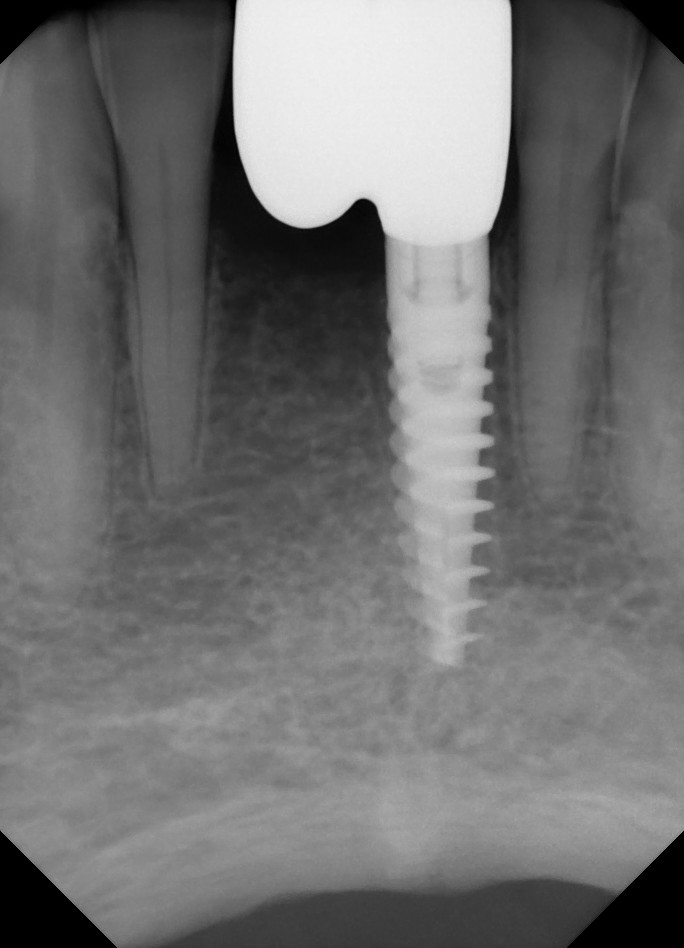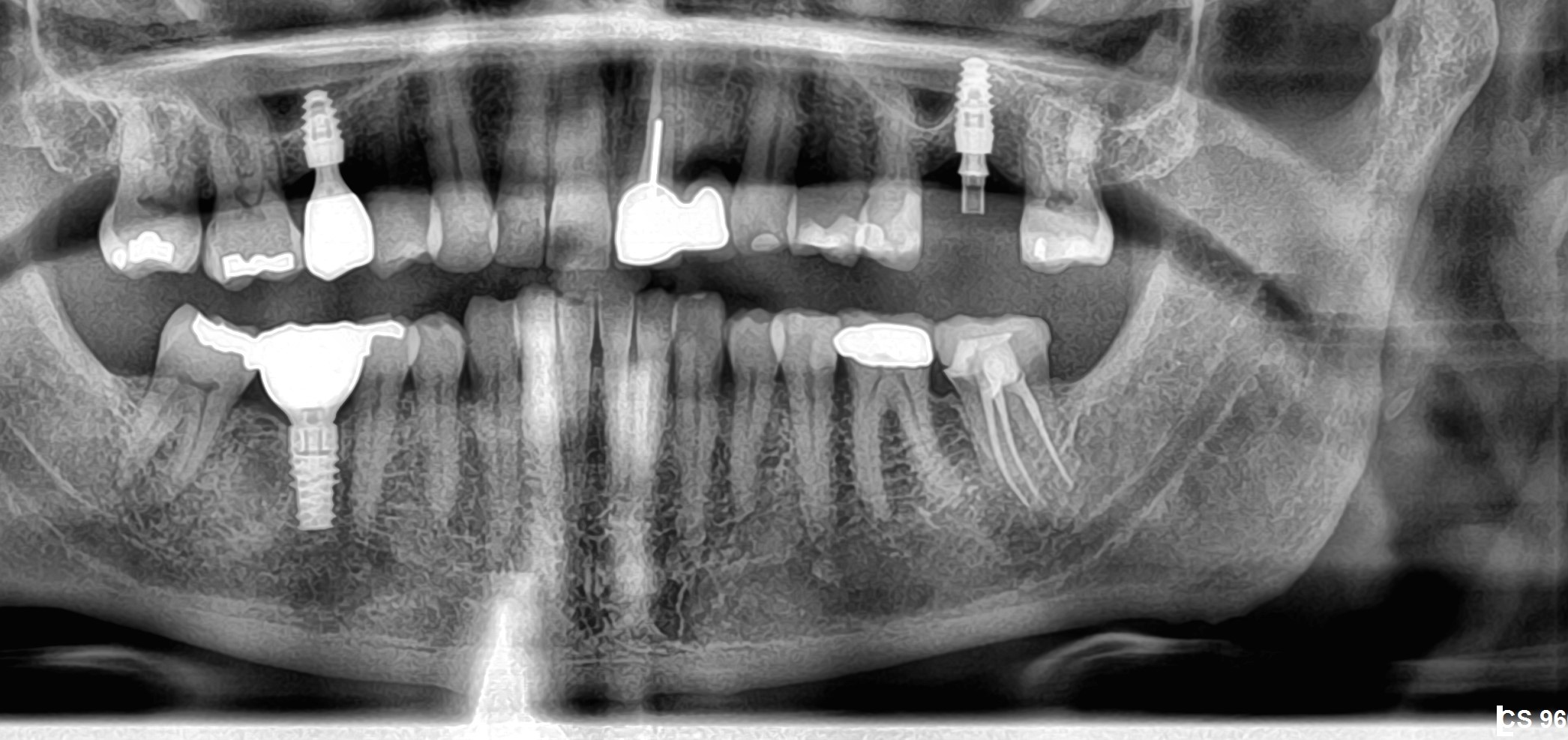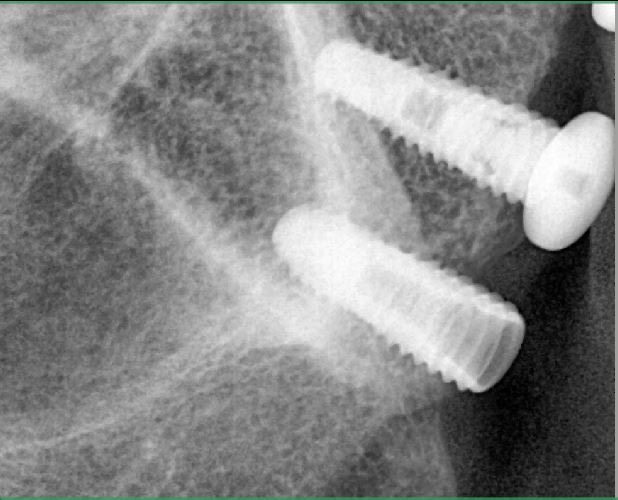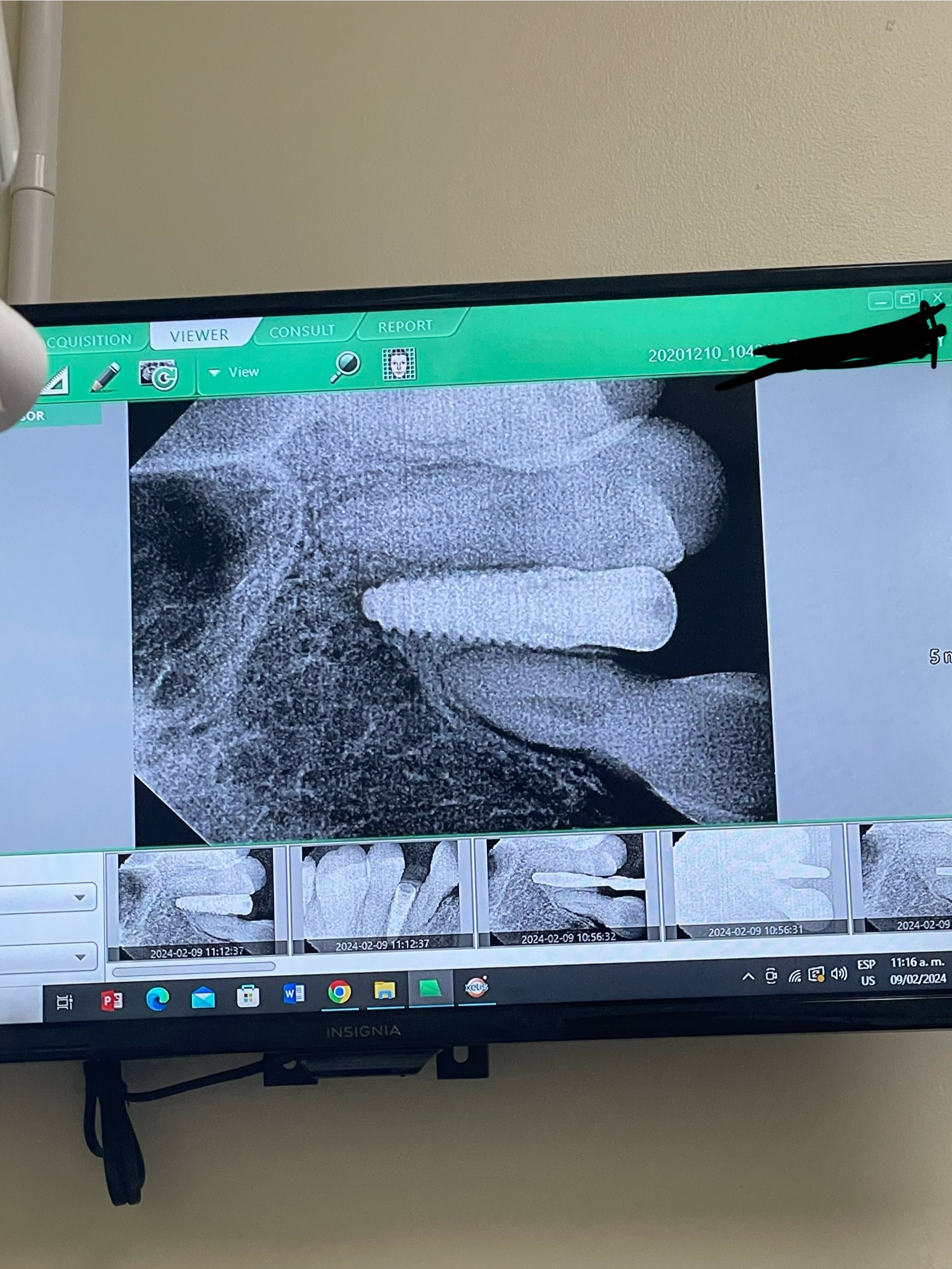Peri-Implantitis Cause of Implant Loss?
Veronica, a dental implant patient, asks:
I had 2 dental implants fail due to peri-implantitis in my lower jaw.
The original CT scan showed good bone quality. But in less than a month I developed peri-implantis and lost one of the implants. Near this implant was a tooth with a peri-apical lesion. The site was manually cleaned and disinfected with antibiotics, then grafted with bone and covered with membrane.
After two months I lost the second implant also. Only one week has passed since then and I still have pain. According to my surgeon, everything looked good, he did everything right and I am healthy. What went wrong? Should I try for implants again? If so, how long should I wait? What should be done differently?
12 Comments on Peri-Implantitis Cause of Implant Loss?
New comments are currently closed for this post.
Amr Bokhari
6/16/2008
Veronica,
Implants have a very high success rate. Unfortunately, you fall in the 5% or so failure rate. It's diffcult to assess why your implants failed based solely on the info. you provided. Are you a smoker, diabetic, other systemic illnesses? If you answer no to the previous questions I would encourage you to have it done again. You mention a periapical lesion adjacent to one of your implants. I think that should have been treated before your implants were placed. You should check with your surgeon who is most familiar with your specific case, however I like to wait 3 months before re-implantation, and perhaps longer (up to 6 months) if a bone graft was performed, depending on the type of bone graft that was used.
Peter Fairbairn
6/17/2008
This is the number one reason for pre-loading implant loss, adjacent tooth infection and nothing to do with so called "peri implantitis". In simple terms when the implant is placed a hole is drilled (osteotomy) which is the ideal route for any adjacent tooth infection to drain , thus it coats the implant resulting in its loss, usually at 2 weeks when the primary stability is lowered.
The adjacent tooth issues must be dealt with prior to any further attempts to place an implant.
Good luck
Jeffrey Field
6/17/2008
Dear Veronica. As I understand it the tooth was extracted and the implant placed on the same day. If this was the case then the failure was most likely the result of placing an implant into an infected area. Although this has been done successfully conventional wisdom is to wait 4 weeks after extraction ( if an infection exists) prior to implant placement. Based on bone loss that occurs with extractions you want to place the implants before 40 days post extraction have elapsed. So waiting 4 weeks ( 28 days) is a good compromise in that it allows time for the infected bone to be bacterial free but not enough time to get bone loss.
I agree that since you have had a failure you should wait 3-6 months before going ahead with new implants.
The other issue is to make sure that the area where the implants were placed originally was properly cleaned out after the implant failure. If this is not been done then you made need a further procedure to do this prior to implant placement. What I mean is after an implant fails the bone in the area can heal to new bone or ( if not properly cleaned out) can heal with fibrous tissue. If the area has healed with fibrous tissue then new implants will also fail.
Best of luck
Jeff
Ron Neff
6/18/2008
Peri-implantitis at less than a month sounds dubious to me.
Lack of initial stabilization, micro-movement, diabetis, smoking all could cause this, as could an abcess on an adjacent tooth. However that tooth would probably have hurt or the progression would have most likely been much slower than 'less than a month'.
Were antibiotics used in any stage of this treatment?
Dr A.R.Rokn
6/18/2008
Before reimplantation the bone volume must be checked because the result of first osteotomy may be bone lose and ridge augmentation may be needed.
Don Callan
6/18/2008
Get a second opinion from a different local dentist and from another surgeon!!
RB
6/18/2008
It is very hard to say exactly what caused this...the above answers have covered the potential problems...fibrous tissue, didn't properly clean the socket of all bacterial problems, or lack of stability....to me it sounds more bacterial from the lesion...even with antibiotics I have seen implants fail rather quickly because of this problem...what most doctors do is clean the apical lesion and then move on...my philosophy is the lesion didn't get there on its own...need to solve the problem entirely by getting rid of the culprit (the adjacent tooth with the lesion!!!) Even if you clean this out...there is no guarantee this area won't be a concern in the future...I have been very successful practicing this way since I had some of the same problems in the past...it is just more predictable and that is what my patients want....PREDICTABILITY..
Good luck!
karen
6/21/2008
I had 8 maxilla implants June of '07. Jan of '08 one removed and now June '08 one re-inserted with lots of problems. Seems that I have the "implantitis" around several implants. The last graft and replacing of implant was 6i/11 but already the tissue has pulled away from the implant and I can see a lot of it! Any help? This is late Friday eve (11:00 pm) so do you think I shoudl call the surgeon this weekend or just wit until Monday. Any one have any suggestions or HELP on what I can do as the patient?????
peter Shieh
6/25/2008
what type of implants were used? Some brands are definitely more successfull than others.
karen
6/26/2008
I do not know what the implant (s) are. I had another appt yesterday and the decision is to wait another week to see if there's enough tissue growth (hope that makes sense) over the exposed 2 implants and if not then the surgeon will go in .......... again for the 9th time..... and clean all 7 and bury them. The one replaced 6/11 he buried in hopes that will work. I was told yesterday that saucerization up to the 2 upper threads is normal, however, I have more than that with all the remaining 7! For now it's wait, see, and use chlorhexidrine and KEEP IT CLEAN. Any idea of dietary thing that I might change? I'm focusing on calicium, yogurt, and read somewhere that Vit C was good for peri-dontal disease. I'm trying. Thanks for your reply.
graciela dickson
7/23/2008
I had an implant done in USA about 3 years ago and it is doing great. They waited 4 months between the time the implant was done to place the permanent tooth. Last year I had one done in Venezuela. they place a temporary tooth right away. I had problems with the tooth since it came loose two times. three months later I had the permanent tooth placed. Now is almost 1 year and the dentist said that I have perimplantitis (3) I am very concern and I will like to know if it was cause because the tooth was place so soon, or because it was not done right. My implant is a IMTEC 4.3 and 11 mm. Please let me know if this means that the implant is going to fail or if it can still be save. thanks
Michelle
9/26/2008
Hi, I had two implants put in on September 3rd. Both seemed to be healing well with no pain, I had the stitches removed on September 17th and the Dentist said everything looked fine. I felt well enough to eat and chew pretty well. On Sept. 20th I felt the screw that was in the implant getting higher and just thought it must be the gum healing and receding. Well, the screw fell out. I called my dentist. He's 100 miles away. I made sure it was clean and used a dental rinse and screwed it back in. Those were his instructions. I saw him on Sept. 24th and he took out the screw and showed it to me and said it looked clean and everything looked well. He said he needed to cut the gum around the implant that tried to grow over it. He gave me a local and started cutting. Then he proceeded to screw the screw back in. He was using what sounded like a power tool to screw it in. Suddenly, I had a searing pain. I thought it was the tightening of the screw and I could take it for a short time. Well it got worse. He gave me shots and numbed it and removed the implant. Later he told me that the implant failed. He said the pain I felt was from the implant turning around in my jaw while he was tightening it. I feel that he may have over tightened the screw and it broke the implant loose because it hadn't healed completely yet. Is this possible? Has anyone ever heard of this?





